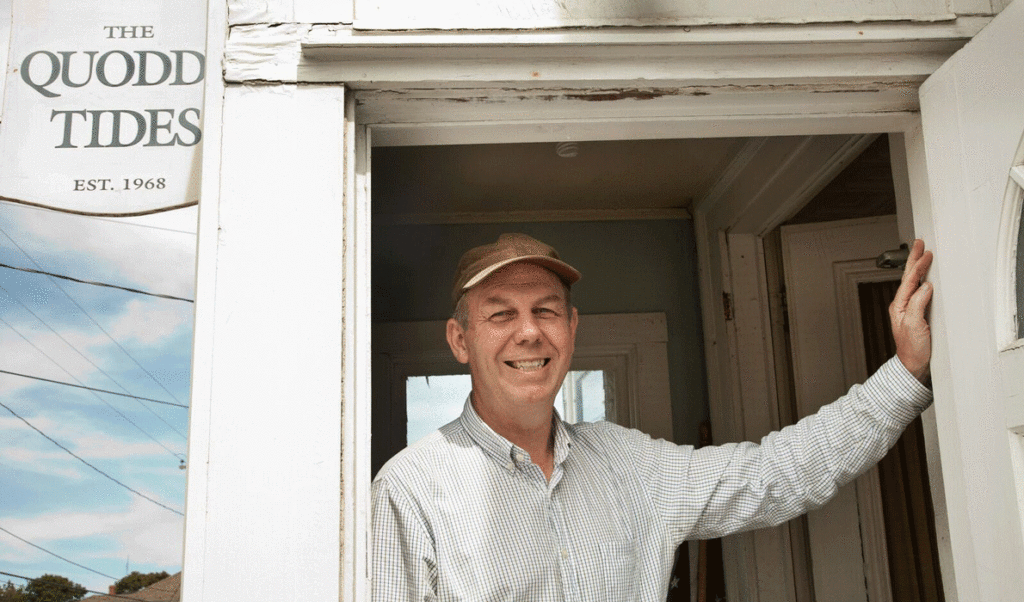We journalists are supposed to be objective, but really, the objectivity exists in the work we produce, not in our hearts. The truth is that we tend to be an opinionated bunch. I will admit there are places on the Maine coast I love more than others. One of those places is Eastport.
It’s rough around the edges, and I am not so naïve as to believe the signs of economic struggle there are part of its charm. I continue to root for eastern coastal Washington County to move into the economic sunshine Maine’s seven other coastal counties are enjoying. It’s just a matter of time. Eastport is an unfinished canvas. The colors and shapes the artist has roughed-in are stunning, and the finishing touches will come.
Eastport was an island until the 1930s, when a causeway was built linking it to the mainland as part of a never-completed tidal power project. Water views abound, and the sweep and scale of the same powerful tides that inspired electricity generation schemes now inspire awe from visitors.
And people are visiting. Walking along Water Street in late June, we saw license plates from North Carolina, Texas, and Virginia. I chatted with a couple visiting from California who told me their friend had purchased and was beginning to renovate three houses in town. The couple took the owner up on the offer to visit, and they were loving this authentic Maine island town, a locale that has escaped becoming Anyplace, U.S.A.
My wife and I were in town to help celebrate the 50th anniversary of The Quoddy Tides, Eastport’s twice-a-month newspaper that covers the Passamaquoddy Bay region. The newspaper is a critically important community institution, underscored by the affection it engenders from locals, visitors, and those who have moved away but still subscribe.
The paper ignores the border with Canada in its editorial reach, seeing instead the shared maritime heritage and economy.
At the event, publisher and editor Edward French told stories about how his mother, Winifred, started the paper in 1968 when she moved to town with Edward’s father, who had become the town doctor. Though she had no newspaper experience, she believed the region needed community journalism.
The challenges were many. Edward described the process of shipping advertising and editorial copy to nearby Deer Island, in Canada, and then having to “dummy” the lay-out based on numbers phoned-in from the island. More than once, the boat trip to the island was made under dangerous weather—and tidal—conditions.
For its first issue, Winifred drove the pages to Blue Hill to be printed, but crashed her car and suffered a broken nose. That was the first, and only issue to ever be late.
Alan Baker, the long-time publisher of the Ellsworth American and Mount Desert Islander papers, prints The Quoddy Tides in his shop, and he spoke about the early years and the friendship he developed with Winifred. He said she delighted in walking into a store with copies of the paper and announcing, “The Tides in… and the dirt’s out!”
Alan also “made news,” as we say, at the anniversary event, telling the group that the Maine Press Association had elected Winifred, posthumously, to its hall of fame.
I spoke about the special role community journalism holds. Unlike reporters who blow into town for the big story from a daily paper or TV station, community journalists live in town. They meet weekly with the police chief and city manager, and if their stories from last week were inaccurate or unfair, those meetings can be tense.
Those reporters and photographers care about their community and that’s what is evident in Edward French’s work at The Quoddy Tides.
Just days before the Eastport event, a man allegedly shot and killed five at Maryland’s Capital Gazette. The tragedy hung in the air at what was a festive affair, and it underscored the powerful nature of the relationship between newspaper and community.
Tom Groening is editor ofThe Working Waterfront.





